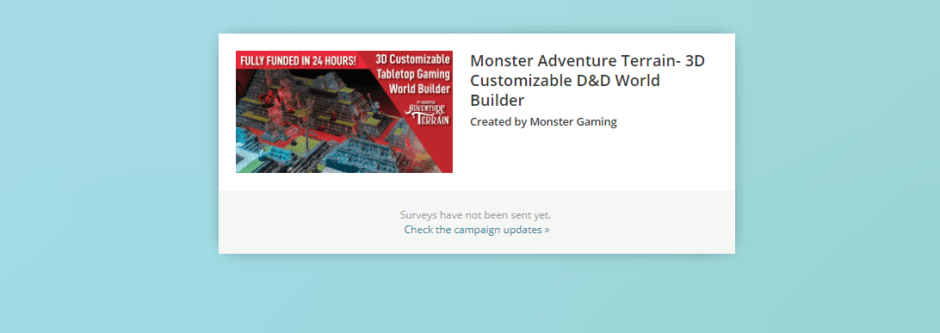If you’re a board gamer or roleplayer and on Facebook, you may well have encountered posts from Justin’s Game FAQs. The fresh-faced youth has over 400 people following him on the platform and in his bio, which about this interest in writing game FAQs, he links to this GameSpot where he writes as jelly_soup.

Justin’s sponsored ads take you to Kickstarter projects. His page is one of many similar ones who seem to be competing to find the latest and best games for you.
He’s not real. The photograph used for Justin is a photograph by Parker Whitson which is featured on Unsplash. Unsplash is a site that, amazingly, gives you great photographs to use as you want. Geek Native has used them on articles before and will again.
The fact that Justin isn’t real won’t come as a surprise to many people. Gaming is a passion project, and some people spend their own money just to write about it. Geek Native does precisely that.
Alternative pages, like Cardboard Revolution (Justin’s brother, by the way), also pop up on your Facebook feed to talk about games. Justin generates more observations from people, though. It’s perhaps the juxtaposition of apparently being an actual person with the commercial intent that makes people take note.
Justin really is…
Justin is a company called BackerKit. The chances are high that if you’ve heard of Justin and his FAQs, you’ll have also used BackerKit.

BackerKit takes some of the pain out of the logistical challenges of Kickstarter. It helps collect pledges, manage add-ons and coordinate addresses for shipping.
The company also offers marketing services. They’ve helped some of your favourite Kickstarters to become successful in the first place. Games that we can thank BackerKit for helping with include Villagers (which raised $482,171 ) and Tainted Grail: The Fall of Avalon ($2,477.915) as well as Dinosaur Island: Back from Extinction ($2,045,463).
There’s no doubt this is another helpful service from BackerKit. Geek Native gets multiple emails about Kickstarters every day, and based on the contents of some of those, it’s safe to say that not every game designer knows or cares about marketing. Being able to tap BackerKit, ask for their helping hand, is a service I can see many publishers being thankful for.
BackerKit does not list their various Facebook guises on their website, nor do they point back to their site from Facebook, but technology connects them.
If you ever click on a sponsored link from Justin, you’ll redirect through a domain called Project Domino.com. Each one of Justin’s projects has a sub-domain all to itself. For example, the campaign for Monster Terrain used a domain monster-terrain.projectdomino.com.
A quick way to see if BackerKit is helping with the digital marketing services of a redirect is to try that same sub-domain with the BackerKit site. In this case that means monster-terrain.backerkit.com.

What you get is a tiny thumbnail of a site and a project update panel.
I suppose that could be one heck of a coincidence. The next bit of code, though, is confirmation enough.

The Google Analytics tracking code on ProjectDomino uses the same account as the Google Analytics code (yellow highlighted) on BackerKit.
I don’t want any more posts from Justin
While researching this story, I saw a few comments on Justin’s sponsored posts from Facebook users asking to ‘unsubscribe from Justin’, to be left alone or stop seeing so many ads. This is pretty common on Facebook, irrespective of the advertiser.
It’s the wrong thing to do.
Leaving a comment on the ad only tells Facebook’s algorithm that you are interacting with the advertiser. It makes it more likely that you’ll continue to see ads from Justin’s Game FAQs.
No advertiser ever wants to spend their money reaching people who will react negatively to their message. Good digital marketing is all about finding the people who’ll respond positively to the news. BackerKit works for their clients because they know how to get the news of those gaming Kickstarter projects out to people who might care. They’ll be working hard to tweak their Facebook campaigns so that people who don’t care, don’t see the ad.

The mechanism in Facebook to stop seeing a particular ad or to opt-out of sponsored messages from an advertiser starts with clicking the three dots in the top right of the ad. Pick ‘Hide Ad’ from that little menu, and you’re sorted. You’ll get to say whether you found the add irrelevant or repetitive too.
Can I be a Justin too?
BackerKit is very good at what they do, are established and have Kickstarter’s trust. They have unique codes they can use to track which links are sending traffic and donations to which Kickstarter projects. This is what allows them to act as middle-men in this game of arbitrage between click costs and pledges.
Kickbooster is a site that wants to see if you can do it. Kickbooster also can track who is successfully generating pledges for Kickstarter projects.
At Kickbooster there’s a marketplace for Kickstarter projects that are paying for this extra marketing and where you can find projects you might earn a commission on. A commission is a cut of the money raised from each pledge. They very rarely have game projects, though.
Sockpuppet or helping hand?
Whether you consider Justin to be a malicious sockpuppet out to trick you or a helpful part of the tabletop game ecology will be a personal decision. Whatever you decide, you don’t have to see Justin, or anyone else on your Facebook stream if you don’t want to. Three little dots have all the power.
Geek Native reached out to a contact at Backerkit to ask for a comment on this article, but they’ve not been able to respond. It is conference season.

